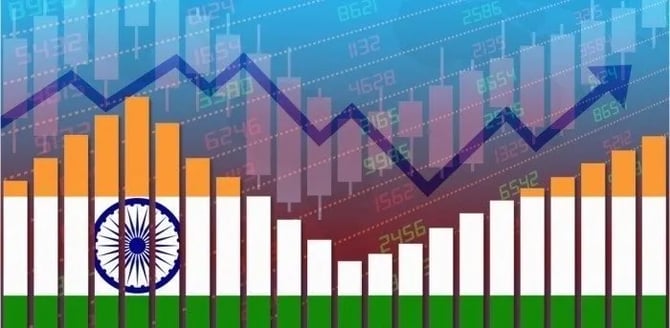India Moves to Control Inflation Through Rate Hikes

The majority of India's monetary policy committee members argued in favor of action to curb inflationary pressures during their April meeting.
Although it chose to keep its key lending rate at a record low, the Reserve Bank of India (RBI) said after the meeting that it will begin to focus on inflation, which has surged after Russia’s invasion of Ukraine.
India's inflation reached 7% year-on-year in March, its highest in a year and a half and above the upper limit of the central bank's tolerance for a third consecutive month.
Analysts expect the RBI to start raising the repo rate in August – and possibly even in June – if inflation remains elevated.
India’s near-term focus will be on inflation containment. Economists think a 25-basis point hike is possible if global crude oil prices remain around $100 a barrel.
What does this mean for me?
If you are interested in emerging markets, it will not surprise you to learn that these economies are just as affected by high inflation as the biggest countries in the world.
Due to the interconnectedness of the global economy, developing nations are seeing high energy prices and supply-chain constraints raising consumer pricing.
You can expect the same cascade of factors in emerging economies if inflation is left unchecked. High consumer prices could lead to depressed economic growth, which could, in turn, threaten a recession.
More News

China Lockdowns Start to Affect Production

Tesla’s Berlin Factory Begins Production

List of Companies Leaving Russia Keeps Growing

Russian Oligarchs and Ordinary Citizens Feeling the Pinch of Sanctions

Western Companies Ditch Russia

Russia Feels the Bite of Sanctions

Ukraine Crisis Escalates with Closure of Gas Pipeline, Sanctions
